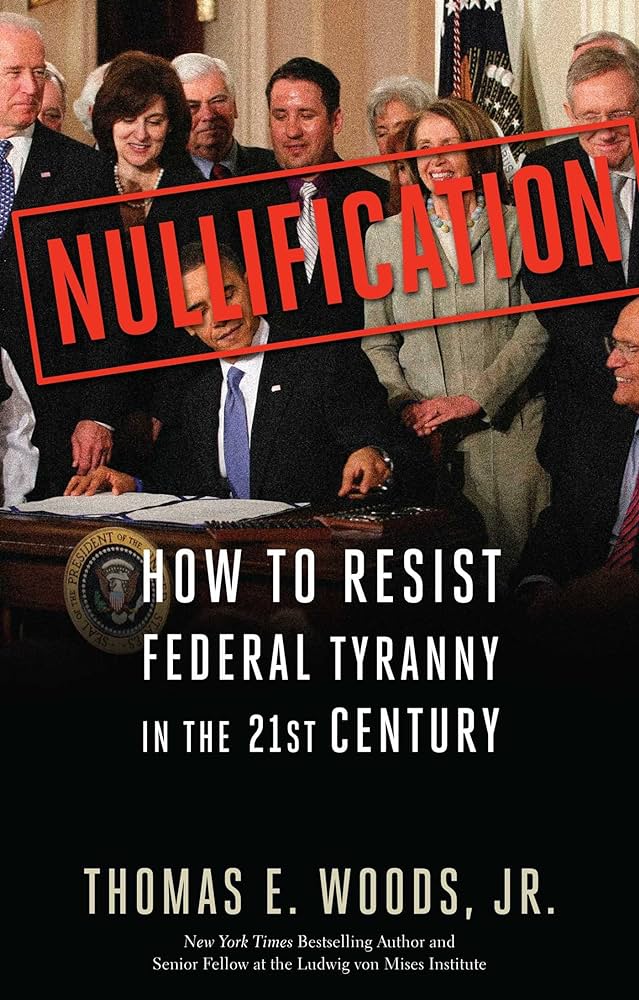|
Nullification: How to Resist Federal Tyranny in the 21st Century
By Thomas E. Woods Published in June 2010 309 Pages Thibault’s Score: 1/5 I like the author Tom Woods, and have met the author personally several times. I love his podcast, I’ve done many of his courses, his lectures are great, and (many years ago, in high school) I read some of his books. However, I was really disappointed by Nullification. Based on my various interactions with him over the years, I actually agree politically with Tom Woods on many political issues, especially concerning Nullification. Because of this, I did not feel that his book was a strong defense of the ideas which we share. Nullification is the idea that state governments can vote to refuse to enforce federal laws that they find unconstitutional. This book feels extremely dated for a number of reasons. First, it was written before marijuana was legalized, before states became sanctuaries for illegal immigrants, and before gun control nullification was routine. At the time this book was written, I guess that nullification was fringe. Now it is mainstream. As a result, this book feels like a try-hard defense of an idea that is fringe. So much has changed in the 13 years since this book was written, that it mostly addresses irrelevant items. I also didn’t like the writing style. The historical segments were good. However, Tom Woods is too argumentative. I always feel like he is arguing with imaginary voices in his head. Instead, when I read a book, I want to be told a story. The best arguments never feel like arguments; they feel like entertaining narratives. Finally, I disagree with a major thrust of his argument: legalism. American conservatives are obsessed with “the rule of law.” Many arguments were predicated on the constitutionality or unconstitutionality of laws. This obviously doesn’t matter in the real world. The only thing that matters is ultimately physical coercion - who has the soldiers, and who has the guns. North Korea and China guarantee freedom of speech in their constitutions; just as the US constitution does. Clearly, in these two countries, there is no practical freedom of speech. Likewise, the argument that I would make for nullification isn’t legalistic. It is purely force based. If laws can be ignored, they can be nullified. If police and government officials can be bribed, coerced, or convinced to stop enforcing a given law - that is almost as good as nullification. In 2010, Americans lived in a society where there was still a semblance of the rule of law. Back then, to understand what I was talking about, you had to go to places like Brazil. Now, in 2023, it is amply clear to almost everyone that the law is just a pretense for politicians and police to do whatever they please. If you say something that is politically unpopular, the government will find trumped up charges, and prosecute you. Likewise, if you want to do something illegal, then just do it and hope that you don’t get caught. When laws can be safely ignored, revolution becomes unnecessary. I do not recommend this book. I barely made it to the appendix. It is dated. At best, if you were writing a history of the libertarian movement, this would be a somewhat interesting historical record of what libertarians believed circa 2010.
0 Comments
Leave a Reply. |
Thibault SerletMost of my articles are book reviews, but I also write about many other topics. Archives
December 2023
Categories |

 RSS Feed
RSS Feed